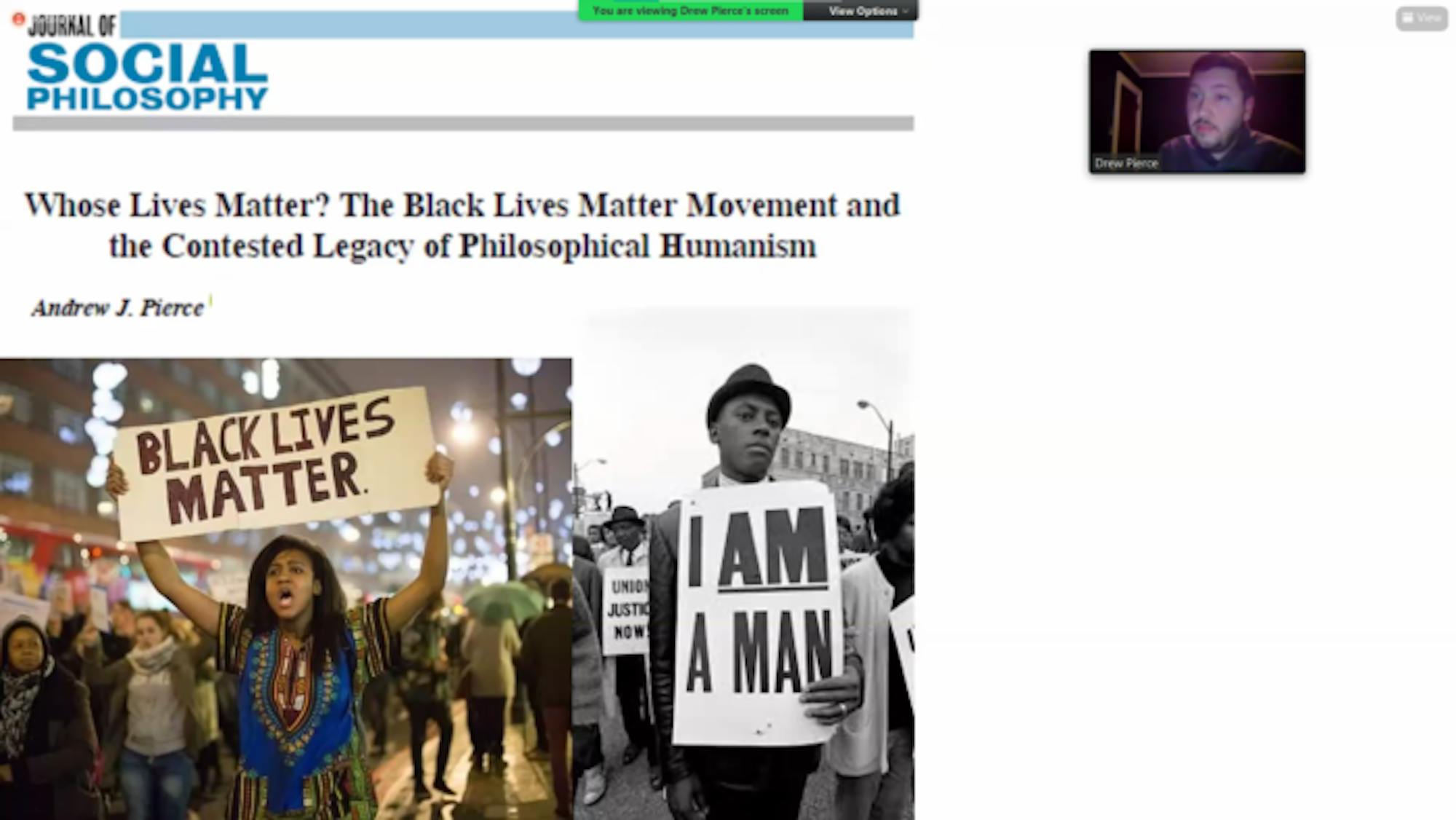The Saint Mary’s College Faculty Affairs, Inclusion and Retention Committee hosted philosophy professor Andrew Pierce and global studies professor Nell Haynes Wednesday for a virtual panel discussing the role of language in issues of race and immigration.
Chilean Immigration Propaganda
Haynes began with an analysis of anti-immigrant memes on social media in northern Chile. Though it is far north from the economic and political centers of Chile, the Tarapaca region draws large numbers of Bolivian immigrants, she said.
Haynes first presented pictures of graffiti from the region, which showed violent messages directed towards Bolivians. In her research, Haynes said she considers memes, while more mundane, to be part of the larger spectrum of “extreme speech.” Some graffiti in the region, “complain in clear language about the presence of Bolivian immigrants, but memes use humor and usually garner far more engagement,” Haynes said.
Displaying images of different Chilean memes, Haynes analyzed the humor and rhetorical devices that the memes used to rebuff Bolivians. One meme from 2015, for instance, used a play on the Spanish word for “alien” to refer to Bolivians.
“This particular image is especially appropriate in referring to Bolivians, and blaming them for social ills,” she said.
Pointing to a 2017 incident in which a mob of Chilean fishermen set fire to two Peruvian immigrants, Haynes said that the seemingly mundane language can have large consequences.
“Mean language may appear as superficial, but certain instances of anti-immigrant violence remind us of the material consequences,” Haynes said.
Haynes was also described why northern Chileans used such language to put down Bolivians. She described life in the region as an intense struggle for resources, which intensifies animosity towards foreigners.
“Their memes subtly support discrimination against immigrants by casting real Chileans as more deserving of social and economic resources,” she said.
Philosophy behind Black Lives Matter
When it was his turn to speak, Pierce described his research of approaching the ongoing debate of “Black Lives Matter” against the “all lives matter” statement through a philosophical lens.
Whereas Black Lives Matter (BLM) often gets characterized as a political and social movement, Pierce said it “also has a philosophical dimension that reflects some of the most important critical work being done in the philosophy of race today.”
BLM, Pierce explained, follows a humanist tradition that has defined civil rights movements since before the Civil War.
“In order to convince white Americans that slavery was wrong,” Pierce said, “Black abolitionists like Frederick Douglass had to first convince them that slaves were fully human.”
In his discussion, Pierce looked back upon the egalitarian propositions of the Enlightenment period, noting the intensely racist views held by and influenced by leading thinkers such as Immanuel Kant and Thomas Hobbes.
Pierce said, the issue in that former philosophy was the way these thinkers defined humanity.
“Humanism always runs the risk of dehumanization. If you’re going to define what it means to be human in some concrete way, you run the risk of excluding people,” Pierce said.
After discussing these philosophical contexts, Pierce commented on the “all lives matter” response to the BLM movement.
“You’re sort of seeing history repeat itself in a way where this sort of superficial universalism is used actually as a way of denying the concrete claims to be recognized as human that Black folks are making,” he said.
To Pierce, the language, much like the anti-immigrant language in northern Chile, has its consequences.
The all lives matter retort, he concluded, “serves, intentionally or not, to undermine racial justice. And it continues, consciously or not, a problematic history of dehumanization.”













